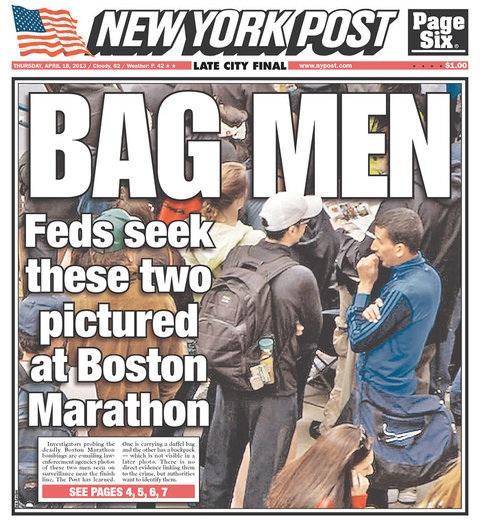
In today’s society, information is everywhere. Newspapers, magazines, and television are only a few of the media outlets people use to stay in touch. Ever since the incarnation of the internet, information published by newspapers the next day has almost become redundant. With the introduction of social media sites such as Twitter, Facebook, and Reddit, news corportations struggle to keep up with rapidly changing word of mouth.
This struggle has been going on for years now, but it became increasingly evident with the local tragedy that occured on April 15th. Seconds after the explosions, tweeters and other social media sites went into a frenzy. Before any newspapers or news stations were able to report on the explosion, witnesses were able to relay the information. News stations relied on YouTube posts and other witnesses’ tweets before they were able to compose themselves.
As the crime scene unfolded, news stations raced to be the first to release their coverage of the tragedy. While many news outlets had erroneous reports, The New York Post and CNN were the most notorious for their errant information. Immediately after the first two explosions, Fox 25 News and NBC News both reported there was a third explosion at the JFK Library, and worried citizens immediately believed it was related to the bombings. CNN also reported that the explosion at JFK was, indeed, a third bombing. Contrary to the news these stations quickly released, the cause of the fire was actually an accident believed to have been caused by mechanical problems.
As the drama ensued, news reports became more and more inaccurate. Media outlets rushed to have the first and most prominent news reports, and although some were faster than others, the majority of the reports were fictitious. The New York Post is currently under fire for its poor reporting during the Marathon bombing. Almost immediately after the explosions had cleared, the newspaper was the first to report on the tragedy, claiming twelve people had died. Hours later, they reported officials had a Saudi suspect in custody, which was also false. Three days following the tragedy, and its careless, erroneous reports, The Post released a photo titled: “BAG MEN: Feds seek these two pictured at Boston Marathon.” Eventually, authorities cleared the two innocent men, neither of which had any relations to the destruction.

Two days after the attacks, the drama continued. At approxiamtely 1:40 CNN and Fox News Boston both reported there was an arrested suspect. Both reporters referenced confirmation from a “Boston official,” which was convincing enough for the general public. A mere ten minutes later, NBC News confidently stated that “no arrest had been made… nor has a suspect been named.” Over the span of a half an hour, numerous erroneous reports were made, misleading the general public. All reports stated they had “reliable sources that were close to the investigation,” but were proven inaccurate. Why were these reports so inaccurate? CNN analysists tried to uncover why there were so many blundered reports and came to a major conclusion: social media is the press’s biggest competitor.
Analysist Joe Concha said “Twitter is that blitzing linebacker that’s rushing a quarterback to throw the ball before he wants to.” In other words, news outlets are rushing to beat the fastest news source in the world: Twitter. By rushing to reveal “breaking news,” outlets are compromising the accuracy of their reports. Even though sites such as Twitter and Reddit are faster, gossip and rumors relating to the case pop up everywhere. Immediately after the bombing, Twitter was buzzing with pictures of a six year old girl who reportedly died while running for Newtown. Another image circulated of a nine year old boy who died running for the same cause. Although these were widely inaccurate, they were “retweeted” thousands of times, leading the site’s users to believe the false information. Three days after the bombing, a rumor that originated on Reddit began to spread like wildfire. Sunil Tripathi, a Brown student who was proclaimed missing a few weeks prior, was reported as one of the suspects. There was no factual evidence to support this accusation, only Tripathi’s slight resemblence to the fuzzy picture released by the FBI. Twitter has also played in the popularity of the second suspect, Dzhokhar Tsarnaev. Once he was convicted, the hashtag #FreeJahar began trending, and Tsarnaev’s Twitter account gained over eighty-thousand followers. Additionally, a Facebook group titled “Dzhokhar Tsarnaev is Innocent,” has over twelve thousand members. Their main belief is that “[Dzhokhar Tsarnaev] has been set up and that there is not enough evidence to incriminate him.”
So which is the best news source? Experts recognize the blunders made by stations such as CNN and NBC. In their attempts to relay news as quickly as possible, they mismanaged the precision of their reports. By checking their sources of information, perhaps news outlets can avoid widely inaccurate rumors that can drastically change people’s actions. Twitter will be the quickest news source for a while, but hopefully in the future, preposterous rumors are double-checked before being released to the public.









